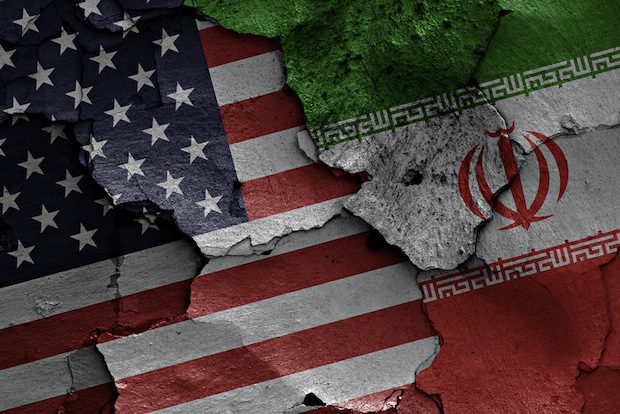The Economic War on Iran Is Fueling a Humanitarian Disaster

Barry Posen has written an important new article on U.S. Iran policy and the possibility of a new war. Here he comments on why Iran won’t ever agree to the administration’s excessive demands:
Though Americans may decry many of Iran’s strategic choices—which indeed threaten several U.S. interests and client states—we must put ourselves in the regime’s shoes. What if another country, which had consistently condemned our form of government, demanded that the United States give up its nuclear science and technology base, its Air Force, and its allies? In short, the United States is demanding that Iran concede its sovereignty and its ability to defend that sovereignty [bold mine-DL]. Given the intensity and religious elements of Iranian nationalism, the regime is unlikely to comply, and the Iranian people will likely support them, despite the regime’s present domestic difficulties.
Posen’s article is worth reading in full, and he does a great service by cutting through the administration’s obfuscations about their real goals in Iran. It is easy enough to point out how the administration’s policy cannot achieve their stated goals, but their stated goals have always been a cover for a much more aggressive and destructive agenda. Posen sees that and calls it for what it is: a push for regime change. His description of the administration’s demands is exactly right when he says that Trump is demanding that Iran concede its sovereignty. This drives home how unreasonable and intrusive U.S. demands are, and it also reminds us that the demands are completely illegitimate. The Trump administration views and treats Iran as if it were a colonial subject that is in rebellion against U.S. authority instead of a sovereign and independent state with its own rights and interests. If Iran gave in to the administration’s demands, a colonial subject is effectively what it would become. So we need to understand that Iranian intransigence in the face of the “maximum pressure” campaign is rooted in the country’s experience with exploitation and interference by colonial powers going back more than a century and in Iranians’ desire for national dignity and independence. We also need to understand that the U.S. is the one playing the role of the aggressor here, and our government is the one that has been attacking Iran and its people with a pitiless economic war. U.S. policy towards Iran has a disastrous goal that the administration is pursuing with cruel and unjust means. The policy is failing, but it is inflicting enormous harm on innocent people in the process. As Posen explains in the rest of the article, this policy is courting war with Iran, and if that were to happen it would be responsible for causing much greater devastation.
As it happens, that economic war has also contributed to Iran’s difficulties in combating the spread of coronavirus. Esfandyar Batmanghelidj and Abbas Kebriaeezadeh explain:
Given its sophisticated manufacturing base, Iran produces many of these products domestically, limiting the initial impact of sanctions on the availability of medicine and equipment. However, inventories in pharmacies and shops are running low. Importers are struggling to get their hands on new inventory and factories are struggling to ramp up local production to keep up with the rising demand. U.S. sanctions are largely to blame for these disruptions.
The Iranian companies producing medicine, disinfectants, and protective clothing also have a supply-chain problem; they are dependent on imported ingredients and materials. For example, even though antiviral drugs are manufactured in Iran, the raw materials are almost entirely supplied from China and India. Should Iranian manufacturers run out of these raw materials, it will be very difficult, if not impossible, to effectively contain and treat COVID-19 in Iran. U.S. sanctions are constraining the supply of raw materials and imported goods in two ways.
U.S. sanctions have already been responsible for causing shortages in medicine and medical equipment, and they have contributed to many preventable deaths of patients that could not get access to the medicine they needed. Now they threaten to exacerbate the coronavirus outbreak that could claim many more Iranian lives. Economic war against Iran is not merely unjust and unnecessary, but it is also a threat to public health in Iran and in the surrounding region. Trying to strangle Iran into submission could end up contributing to the spread of a pandemic:
While much of the global attention towards Iran’s response to coronavirus has focused on the question of whether or not the Iranian government has adequately managed the outbreak, there is a far more urgent concern among Iran’s doctors. If Iranian pharmaceutical companies and medical equipment manufacturers are unable to establish speedy and reliable means to import raw materials, the country could soon face a humanitarian catastrophe.
There is greater urgency than ever to end the economic war on the Iranian people, who are once again bearing the brunt of a purely destructive Iran policy.